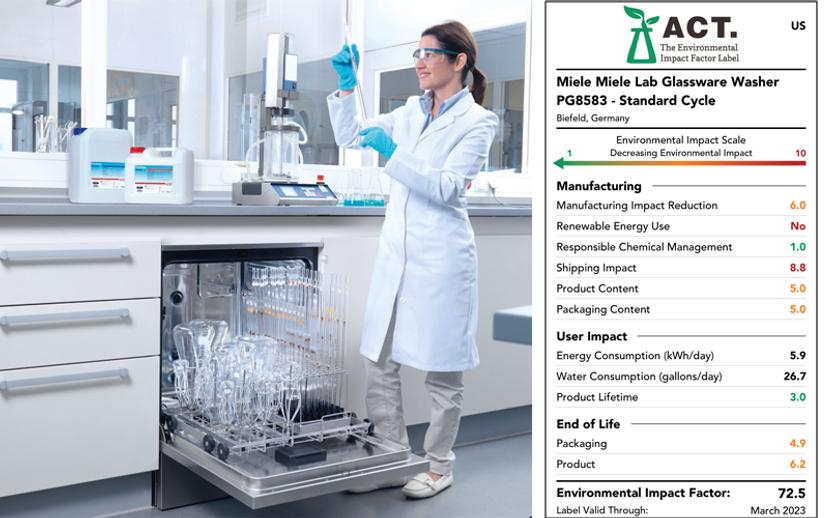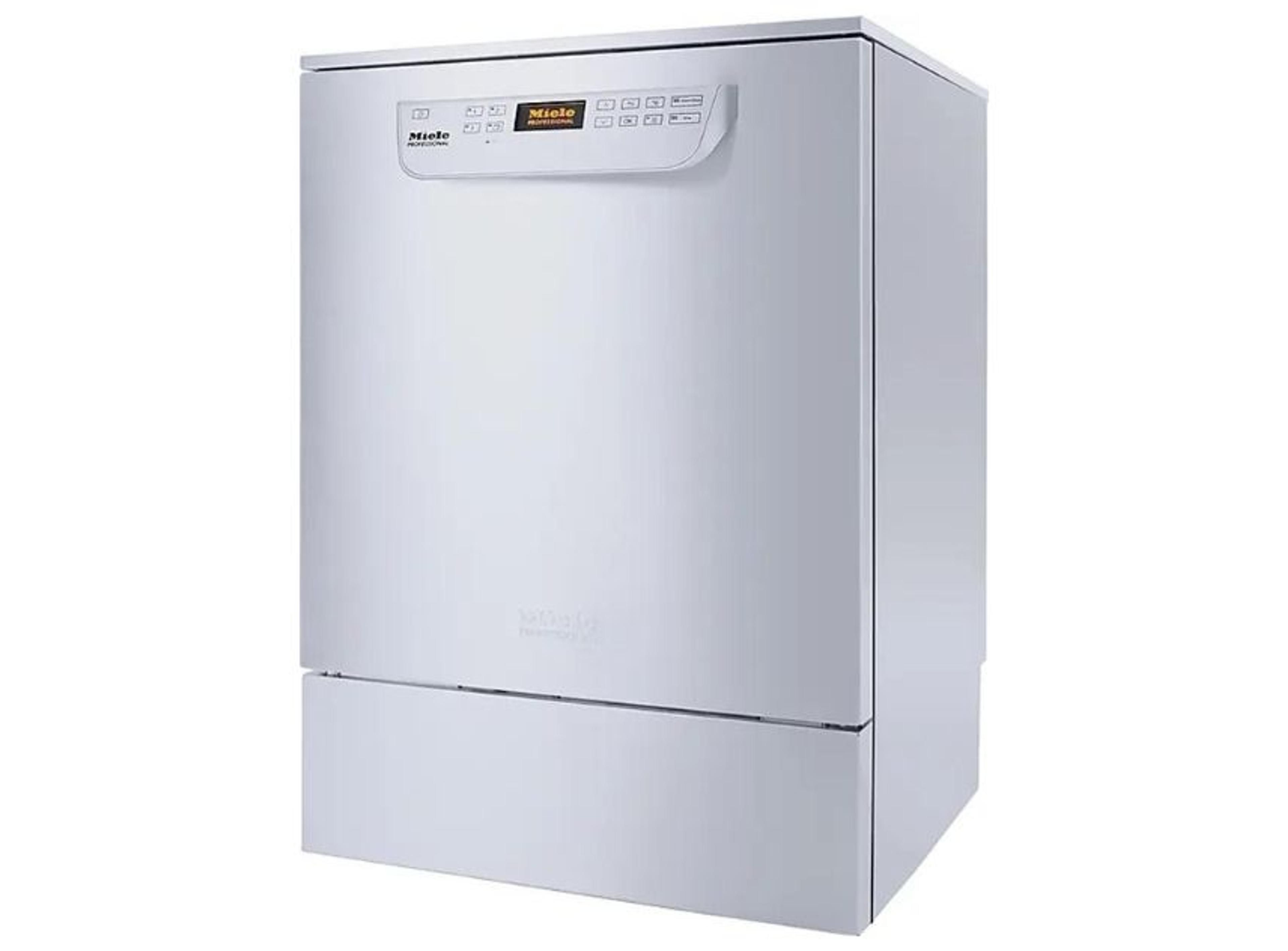Why your glassware washer is a key ingredient for a more sustainable lab
Watch this on-demand webinar for a number of case studies from labs across the world with a particular focus on lab glassware washers
12 Sept 2021

Labs are one of the most resource-intensive spaces in any industry. However, in light of the renewed focus on efforts to conserve resources, save energy and reduce emissions, there are increasing opportunities to reduce this environmental impact through smarter purchases.
In this SelectScience® webinar, now available on demand, James Connelly, CEO of My Green Lab, and Rodney Yeung, from Miele Professional, discuss the importance of sustainable labs and give a comprehensive overview of the unique performance features and energy-saving technologies that contribute to sustainable lab equipment.
Watch on demandRegister now to watch the webinar at a time that suits you or read on to find highlights from the live Q&A session.
Q: Miele has put a focus on sustainability with its lab washers and/or products for a very long time, and immediately pursued the ACT Label certification a couple of years ago. Why is sustainability part of Miele's core mission? And how does it drive product development?
RY: So, when we talk about Miele, we're not just a company but we're a trusted and desirable premium brand. Our 121 years of existence says it all. We are a family company that builds long-lasting and sustainable products that ensure energy efficiency and resource conservation. But we also take care of our employees, and also the environment. So, when we take a look at the ACT Label, it is a verified certification that will hopefully enhance our position and drive more sustainable products and process. With that, lab managers hopefully can make the right choice when they look at any equipment.
Q: When you're talking to lab equipment reps and end-users in the field, what are some of their questions about Miele's lab washers, and what's the one thing they should keep in mind when making purchasing decisions?
RY: When talking to the lab equipment reps or the end-users in the field, they always keep in mind the sustainability of the washers that they plan on purchasing. That means the cost of energy usage as well as the cost of water consumption.

Q: When lab managers are purchasing lab equipment, how should they view resource conservation? While reducing water and electricity consumption is great in terms of today's sustainability, doesn't it also have a dual effect of reducing long-term costs of lab operations as well?
RY: Yes, when we look at a lab, I think that sustainability is more than just about lab equipment. You also have to look at the overall lab, procurement, and to an extent, the lab itself, and the building. Specifically, when we talk about the lab instrumentation itself, there are other factors that also contribute to sustainability. It is not just limited to water and electricity consumption. When we talk about the whole development process, this goes beyond the supply chain to recycling content and end-of-life — what we do after the instrument is in use. I think the ACT Label just summarizes all that. And that contributes to the whole sustainability of the lab, which means that the overall costs for the lab are certainly reduced when you look at the sustainable product.
JC: Just to add to that, I think looking at equipment is incredibly important because the operational energy and water consumption of labs is extremely high. By buying more efficient equipment, you can drive down consumption of both energy and water. And water can also have a significant cost component as well as energy. So, you're saving both resources and you're saving the environment at the same time. Often, these capital purchases don't come along all the time. They're occasional, once every five, ten years. So it's important when you're making those upgrades to be buying the most efficient equipment possible because you'll be using it over the entire lifetime of that piece of equipment. I also appreciate what Rodney said, when you're looking at equipment, you shouldn't just be focusing on efficiency, you should be thinking about how the manufacturer is actually reducing energy used in the production of the material, the end-of-life, whether they're starting to use renewable energy and production. You really have to look at the full lifecycle when you're making these types of purchasing decisions. And that's what the ACT Label helps you do. It has information about usage, energy usage and water usage, but more broadly, it has a lifecycle analysis so that you can understand and compare products based upon all the attributes that go into ensuring its production, usage, and end-of-life is more sustainable.
Q: What is My Green Lab's vision for the future of lab sustainability? Will it primarily be driven by the products we use in the lab, or the equipment that we use, or both?
JC: My Green Lab's vision for the future is that every lab is green and every lab product is designed to reduce environmental impact. So we certainly think that products are a key component of a truly sustainable green lab. But it goes beyond just the products. Our green lab certification is focused on building a culture of sustainability in the lab, getting all the individuals that are either conducting research or supporting those that are conducting research to begin integrating sustainability into everything that they do. And one of those key parts is the materials that they buy. So, our long-term vision is that sustainability is just part of the way that every scientist does their work, the way every lab operates, and the way lab suppliers bring products to the market. And we really have to get the culture, the purchasing, the equipment, the people, as well as the institutions all involved if we're going to create change and achieve our mission, which is to build a global culture of sustainability in science.
Find out more about how you can make your lab a more sustainable place>>
SelectScience runs 3-4 webinars a month across various scientific topics, discover more of our upcoming webinars>>

